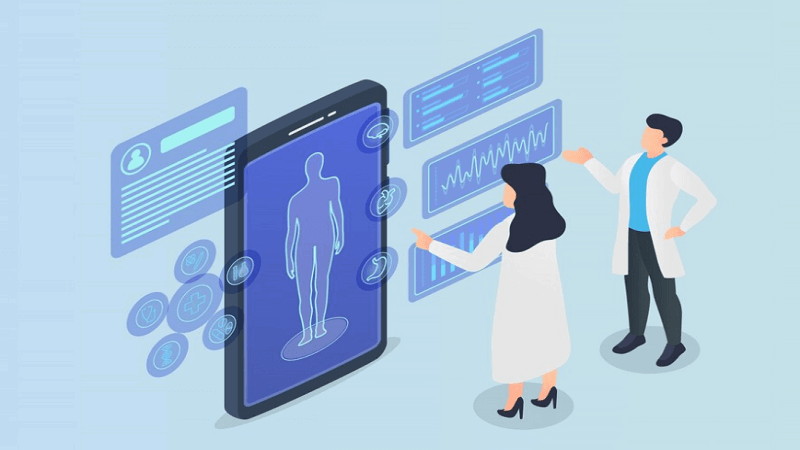Revolutionary changes in orthopedic care are underway, and at the heart of this transformation lies Electronic Health Records (EHR). In this article, we’ll explore how EHR is reshaping patient engagement providing a more personalized and accessible healthcare experience.
As of 2021, nearly 4 in 5 office-based physicians (78%) and nearly all non-federal acute care hospitals (96%) adopted a certified EHR. This marks substantial 10-year progress since 2011 when 28% of hospitals and 34% of physicians had adopted an EHR.
Unveiling EHR in Orthopedic Practices:
Learn about the definition and purpose of EHR, and discover how orthopedic practices are seamlessly integrating this technology into their workflows to enhance patient care.
Advantages of EHR in Elevating Patient Engagement:
Explore the numerous benefits of EHR, including streamlined access to medical information, improved communication between patients and healthcare providers, and the development of personalized treatment plans.
Innovative Technologies Supporting Engagement:
Delve into the world of mobile applications, telemedicine, and wearable devices, discovering how these technologies complement EHR to monitor orthopedic health, ensuring a comprehensive approach to patient engagement.
Impact on Overall Patient Experience:
Learn how EHR contributes to improved convenience and accessibility, empowering patients in their healthcare journey. Real-life case studies and success stories highlight the tangible impact on the overall patient experience.
Addressing Challenges and Considerations:
Understand the challenges associated with EHR implementation, including privacy and security concerns, and explore strategies to overcome technological barriers while ensuring healthcare professionals are adept at using this transformative tool.
Future Trends in Orthopedic Care and EHR:
Looking ahead to the future of orthopedic care, a transformative landscape emerges as Electronic Health Records (EHR) evolve and seamlessly integrate with artificial intelligence (AI). This integration enables predictive analysis, empowering healthcare providers to adopt a proactive approach to patient care.
The convergence of EHR and AI fosters patient-centric innovations, offering personalized treatments based on comprehensive health records and predictive analytics. Telemedicine, remote monitoring, and AI-driven virtual assistants redefine patient engagement, allowing personalized care from home.
Ethical considerations include safeguarding patient privacy amid advancing technology. In essence, the future of orthopedic care promises a dynamic blend of predictive analysis, patient-centricity, and personalized treatments, reshaping the landscape for patients and healthcare providers.
Conclusion:
Summarize key points and highlight the exciting prospects for the future landscape of orthopedic care, driven by the revolutionary power of EHR in enhancing patient engagement.
